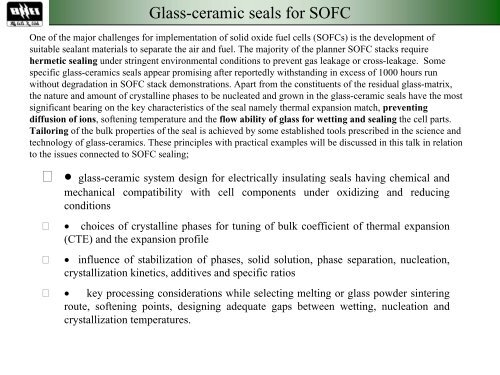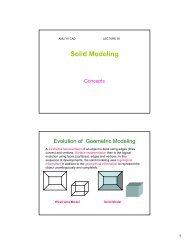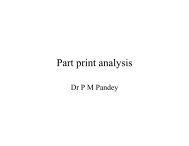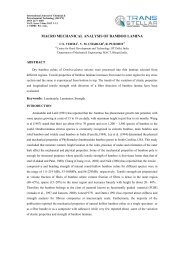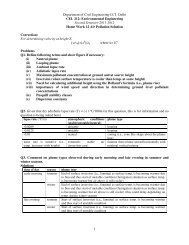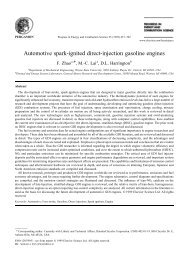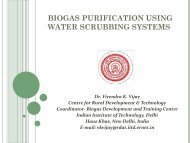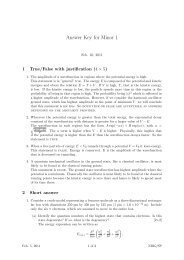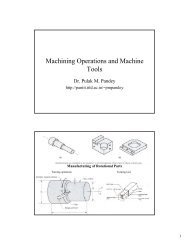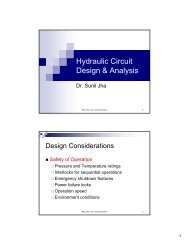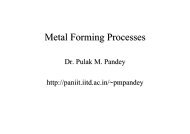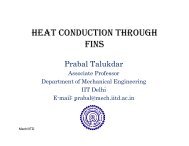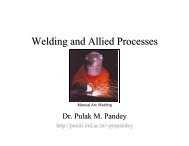Presentation - Indian Institute of Technology Delhi
Presentation - Indian Institute of Technology Delhi
Presentation - Indian Institute of Technology Delhi
You also want an ePaper? Increase the reach of your titles
YUMPU automatically turns print PDFs into web optimized ePapers that Google loves.
Glass-ceramic seals for SOFC<br />
One <strong>of</strong> the major challenges for implementation <strong>of</strong> solid oxide fuel cells (SOFCs) is the development <strong>of</strong><br />
suitable sealant materials to separate the air and fuel. The majority <strong>of</strong> the planner SOFC stacks require<br />
hermetic sealing under stringent environmental conditions to prevent gas leakage or cross-leakage. Some<br />
specific glass-ceramics seals appear promising after reportedly withstanding in excess <strong>of</strong> 1000 hours run<br />
without degradation in SOFC stack demonstrations. Apart from the constituents <strong>of</strong> the residual glass-matrix,<br />
the nature and amount <strong>of</strong> crystalline phases to be nucleated and grown in the glass-ceramic seals have the most<br />
significant bearing on the key characteristics <strong>of</strong> the seal namely thermal expansion match, preventing<br />
diffusion <strong>of</strong> ions, s<strong>of</strong>tening temperature and the flow ability <strong>of</strong> glass for wetting and sealing the cell parts.<br />
Tailoring <strong>of</strong> the bulk properties <strong>of</strong> the seal is achieved by some established tools prescribed in the science and<br />
technology <strong>of</strong> glass-ceramics. These principles with practical examples will be discussed in this talk in relation<br />
to the issues connected to SOFC sealing;<br />
• glass-ceramic system design for electrically insulating seals having chemical and<br />
mechanical compatibility with cell components under oxidizing and reducing<br />
conditions<br />
• choices <strong>of</strong> crystalline phases for tuning <strong>of</strong> bulk coefficient <strong>of</strong> thermal expansion<br />
(CTE) and the expansion pr<strong>of</strong>ile<br />
• influence <strong>of</strong> stabilization <strong>of</strong> phases, solid solution, phase separation, nucleation,<br />
crystallization kinetics, additives and specific ratios<br />
• key processing considerations while selecting melting or glass powder sintering<br />
route, s<strong>of</strong>tening points, designing adequate gaps between wetting, nucleation and<br />
crystallization temperatures.


